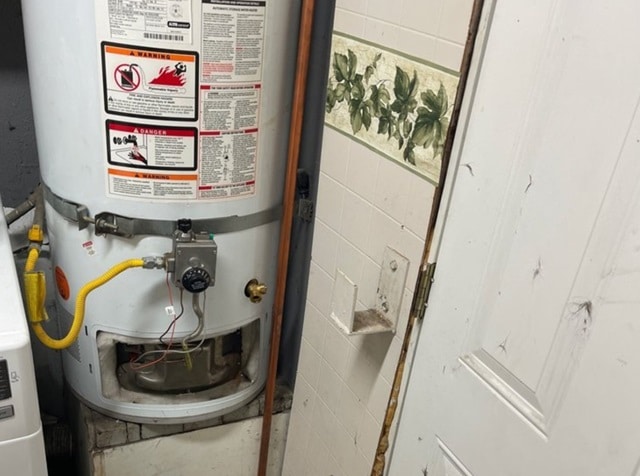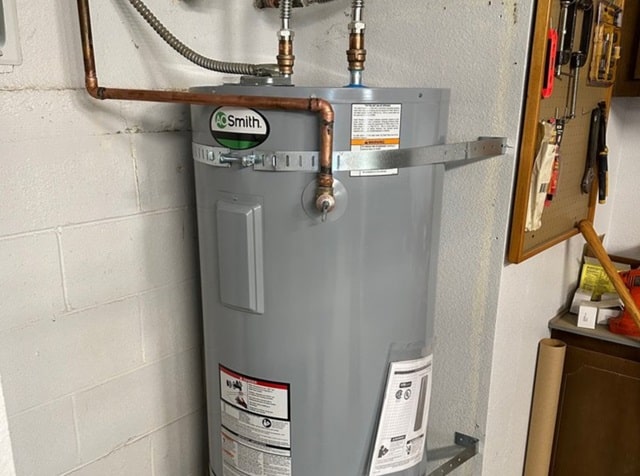Understanding the fundamentals of water heater pressure is critical to maintaining a safe and efficient household system. Several factors contribute to pressure management in water heaters:
This is a critical safety feature on all water heaters. It is designed to open and release water if the pressure or temperature surpasses safe operating levels, thereby preventing potential tank explosions.
The configuration of your home’s plumbing, including the type of water heater (tank or tankless), the presence of pressure regulators, and the characteristics of the main supply pipe (material and diameter), can significantly influence water pressure levels.
The source of your water (municipal supply vs. well) and the pressure at which it is delivered can vary significantly. Municipal water typically comes at a higher pressure, which might need regulation before entering the home to avoid damage.
Water pressure can be affected by the altitude of your property. Higher altitudes can lead to lower water pressure, requiring adjustments to the system to maintain optimal pressure levels.
The temperature at which the water heater is set can also affect pressure. As water heats, it expands, increasing pressure in a closed system. Proper settings, along with an expansion tank, can help manage this pressure increase.

Selecting the appropriate equipment and replacement parts for your water heater is not just about maintaining functionality; it’s about optimizing performance and energy efficiency. Here’s a more detailed guide to making the best choices.
When replacing parts or upgrading your water heater, ensure that new components are compatible with your existing plumbing and heating setup. This includes checking connections, voltage (for electric heaters), and fuel type (for gas heaters).
Opt for parts and systems with high energy efficiency ratings. This not only reduces energy consumption but can also decrease operational costs. Look for ENERGY STAR® rated products, which meet strict energy efficiency guidelines set by the U.S. Environmental Protection Agency.
The material of the water heater and its components plays a crucial role in the system’s longevity. For instance, choosing a water heater with a glass-lined tank can help resist corrosion longer than other materials. Similarly, brass or stainless steel fittings are preferable for their durability and resistance to corrosion.
Ensure that any new equipment or parts are certified and adhere to national and local codes and standards, such as those from the American National Standards Institute (ANSI) or the International Code Council (ICC). Compliance with these standards not only ensures safety but also guarantees the quality of the products.
Think about the long-term implications of your choice. For example, if you plan on expanding your home, consider opting for a water heater with a larger capacity or a tankless model that can scale with increased demand. Also, assess the availability of replacement parts and local service support for the brand and model you choose.
Given the complexity of water heating systems and the variety of options available, consulting with plumbing and heating professionals can provide insights tailored to your specific needs and circumstances. Experts can offer advice based on the latest technology, your geographic location, water quality, and personal usage patterns.
By paying attention to these detailed considerations, you can make informed decisions that enhance the efficiency, safety, and reliability of your water heater system.
When choosing equipment and parts for your water heater, it’s crucial to focus on products that align with the unique requirements of your home’s plumbing system. Opting for parts that match the specific needs of your setup not only ensures efficiency but also helps in maintaining the longevity of the system. By selecting durable, high-quality components that are compliant with current safety and building standards, homeowners can safeguard their systems against premature wear and potential malfunctions.
Effectively managing your home’s water heater pressure is crucial for maintaining a safe and efficient system. By understanding the causes and solutions for both low and high water pressures, conducting regular maintenance, and choosing the right replacement parts, you can ensure your system operates smoothly and lasts longer. For expert advice and service, consider reaching out to professionals like those at 5-starplumbing.com, who can provide tailored solutions and support for your plumbing needs.
I bring over 9 years of dedicated plumbing experience to the table. As a seasoned professional in the plumbing industry, I've tackled a wide range of projects, from residential repairs to large-scale commercial installations.


This article was a real eye-opener! We’ve been dealing with low pressure in our upstairs bathroom for months. Turns out, it was a combination of mineral buildup in the pipes and a partially closed main water valve. After following the tips here, our showers are finally enjoyable again. Don’t ignore pressure issues, folks!